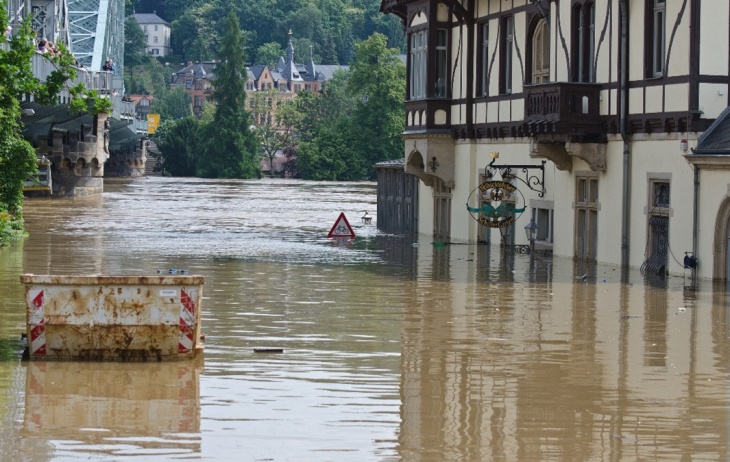Project HYDROLINE

Flood in the city of Dresden, Saxonia, Germany | image: Fotolia / 53186621_L_mwtierfoto
Background
Given that global warming is expected to change the frequency, duration, intensity and spatiotemporal pattern of meteorological extremes, a better characterization of extreme events is crucial for impact assessments, to enable effective preparedness and evaluation of adaptation strategies. Against this background, HYDROLINE develops and exploits an advanced integrated hydrometeorological modelling framework by interlinking convection permitting regional climate model simulations and fully distributed hydrologic response modelling. The advanced modelling framework will be used to investigate hydrometeorological extremes under different global warming levels, and to test and assess mitigation and adaptation measures, to provide options for risk reduction and adaptation planning.
Aims & Objectives
- Convection permitting regional climate modelling (CPRCM) - assessment of meteorological extreme events in past and future climates using retrospective and pseudo-global-warming CPRCM simulations
- Fully distributed hydrologic response modelling – assessment of hydrologic response on meteorological extremes in past and future climates, using a process-based modelling approach
- Model evaluation and application – assessment of the integrated modelling concept and delineation of adaptation measures to reduce hydrometeorological risks
Project staff
Principal Investigators
Prof. Dr. Jürgen Böhner, Institute of Geography, Universität Hamburg
Dr. Olaf Conrad, Institute of Geography, Universität Hamburg
Dr. Diana Rechid, Climate Service Center Germany (GERICS)
Dr. Laurens Bouwer, Climate Service Center Germany (GERICS)
PhD Candidates
Oakley Wagner
Laura Detjen

